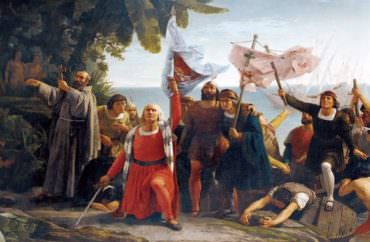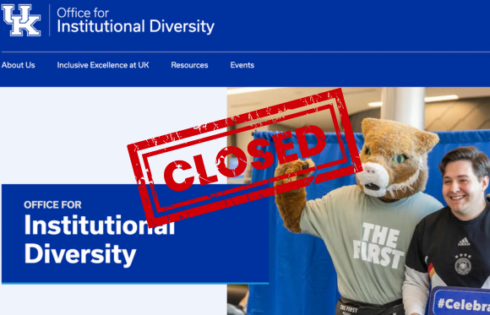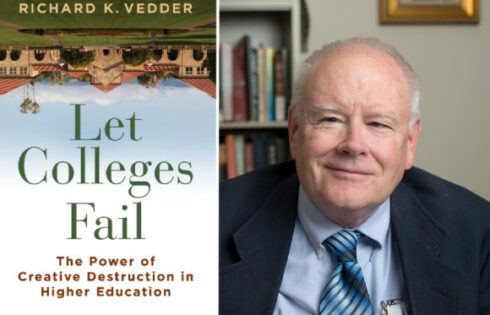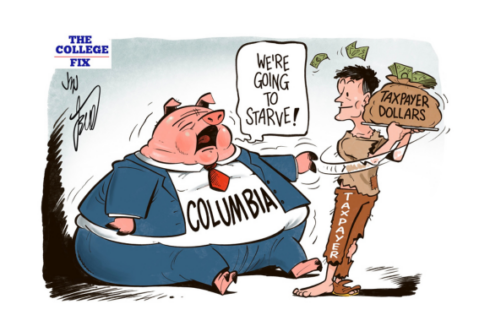
While hundreds of colleges around the country have started to mark Indigenous Peoples’ Day instead of Columbus Day, calling the explorer a racist and blaming him for genocide, one professor says Christopher Columbus is not a villain and his legacy has been maligned.
Stanford professor emerita Carol Delaney, who taught at the university’s department of cultural and social anthropology for nearly 20 years, says Columbus did not condone many of the things he is accused of doing.
“Christopher Columbus writes very favorably about the natives he met and dealt with,” Delaney told The College Fix. “He continually told his men not to go marauding, raping, plundering and even executed two of his own men who did that.”
Columbus did not seek to cross the Atlantic to enslave people, Delaney said.
“His goal was to finance the crusade to reclaim Jerusalem after it had been taken by Muslims so Christ could come back and save the Christians,” she said. “His intention was to find Asia and instead found the new world.”
Columbus is not a villain, she said. As for Indigenous Peoples’ Day, Delaney says she would support a day to celebrate their culture, but not to replace Columbus Day.
“Students should read my book Columbus and the Quest for Jerusalem before forming an opinion,” Delaney said.
“Rather than an avaricious glory hunter, Delaney reveals Columbus as a man of deep passion, patience, and religious conviction,” according to the book’s online description.
The book was based on extensive archival research, fieldwork in Spain and Italy, and his writings.
“She depicts him as a thoughtful interpreter of the native cultures that he and his men encountered, and unfolds the tragic story of how his initial attempts to establish good relations with the natives turned badly sour, culminating in his being brought back to Spain as a prisoner in chains,” the description states. “Putting Columbus back into the context of his times, rather than viewing him through the prism of present-day perspectives on colonial conquests, Delaney shows him to have been neither a greedy imperialist nor a quixotic adventurer, as he has lately been depicted, but a man driven by an abiding religious passion.”
Delaney told The Fix that Columbus’ voyages were complicated and difficult, and extenuating circumstances affected them. For example, during his first voyage, the Santa Maria went aground.
“He had to leave men there, and that’s when he brought settlers back in the second voyage,” she said. “When he came back, all of the men were killed.”
Delaney said a priest who traveled with him said they must kill the native chief in retaliation, to which Columbus replied: “Absolutely not, we will find out what happened.” It turns out the chief had nothing to do with why Columbus’ men were dead, she said.
As for Columbus’ relations with the Native Americans, Delaney says they were so friendly that “the chief’s son was his interpreter and sailed back to Spain with him.”
“There were slaves that were sent back eventually on the third or fourth voyage, and they were thought to be cannibals,” the scholar added. “The Pope said anybody that was a cannibal could be enslaved so he had a part in it.”
While the popular opinion at many universities runs contrary to this narrative, some critics defending Columbus have stronger words to say.
“The modern left-wing revisionist sits comfortably in the freest, most prosperous, most charitable country in the history of the world and from a position of wholly unmerited luxury slanders the man who made it all possible,” said Michael Knowles in the Daily Wire.
MORE: More universities shun Columbus Day, decry colonialism
MORE: Pepperdine U.’s Columbus statue kept mothballed after ‘oppression’ protests
IMAGE: Primer desembarco de Cristóbal Colón en América obra de Dióscoro Teófilo Puebla Tolín/Wikimedia Commons
Like The College Fix on Facebook / Follow us on Twitter






Please join the conversation about our stories on Facebook, Twitter, Instagram, Reddit, MeWe, Rumble, Gab, Minds and Gettr.